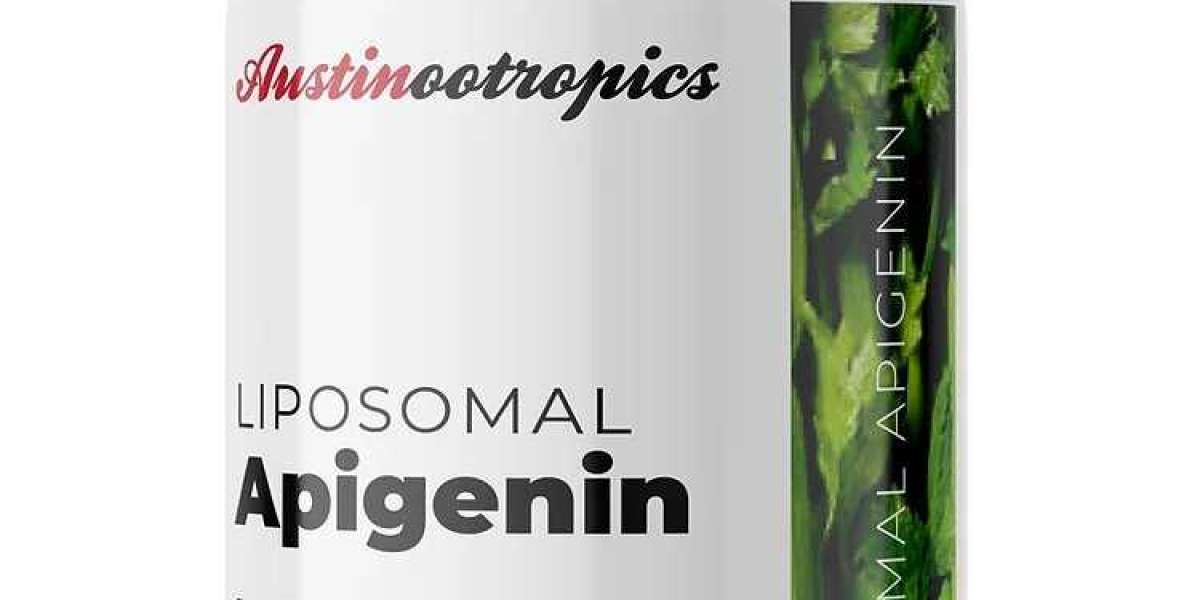Apigenin, a naturally occurring flavonoid found in various plants, has garnered significant attention for its potential health benefits. Present in foods such as parsley, chamomile, celery, and oranges, apigenin is not only a flavorful addition to many dishes but also a powerful compound that may contribute to overall health and well-being. In this article, we will explore the value and quality of apigenin, its health benefits, its sources, and how to incorporate it into your diet.
What is apigenin?
One kind of flavonoid, a group of substances recognized for their antioxidant qualities, is apigenin. It has been extensively studied for its potential therapeutic effects, including anti-inflammatory, anti-cancer, and neuroprotective properties. Unlike synthetic drugs, apigenin is naturally found in many common foods and herbs, making it an appealing option for those looking to improve their health through diet.
The Health Benefits of Apigenin:
1. Antioxidant Properties:
One of the most notable benefits of apigenin is its antioxidant capacity. Antioxidants are compounds that help neutralize harmful free radicals in the body, which can lead to oxidative stress and various chronic diseases. By reducing oxidative stress, apigenin may help protect cells from damage and lower the risk of conditions such as heart disease, cancer, and neurodegenerative disorders.
2. Anti-inflammatory Effects:
Chronic inflammation is linked to numerous health problems, including arthritis, diabetes, and heart disease. Apigenin has been shown to exhibit anti-inflammatory properties by inhibiting the production of pro-inflammatory cytokines. This action may help alleviate symptoms associated with inflammatory conditions and promote overall health.
3. Cancer Prevention:
Research has indicated that apigenin may play a role in cancer prevention. Studies suggest that it can inhibit the growth of cancer cells and induce apoptosis (programmed cell death) in various cancer types, including breast, prostate, and colon cancer. Its ability to interfere with the cell cycle and reduce tumor growth makes apigenin a compound of interest in cancer research.
4. Neuroprotective Benefits:
Apigenin has shown promise in protecting brain health. Studies have indicated that it may help reduce neuroinflammation and promote neurogenesis (the growth of new neurons). This neuroprotective effect could be beneficial in preventing or slowing the progression of neurodegenerative diseases such as Alzheimer’s and Parkinson’s.
5. Anxiety and Sleep Aid:
Chamomile tea, a popular herbal remedy, is rich in apigenin. It is often used for its calming effects and may help reduce anxiety and improve sleep quality. Apigenin binds to specific receptors in the brain that promote relaxation, making it a natural option for those seeking relief from stress and insomnia.
Quality and Value of Apigenin:
The quality and value of adrafanil are determined by its bioavailability, which refers to the extent and rate at which the active ingredient is absorbed and utilized in the body. While apigenin is found in various foods, the concentration can vary significantly. For instance, fresh parsley and chamomile tea are particularly rich sources, while other vegetables may contain lower amounts.
To maximize the health benefits of apigenin, consider the following factors:
1. Source of Apigenin:
Choosing high-quality sources of apigenin is crucial. Fresh, organic herbs and vegetables are preferable, as they are less likely to contain pesticides and other harmful chemicals. Incorporating a variety of apigenin-rich foods into your diet ensures a more balanced intake of this beneficial compound.
2. Cooking methods:
Cooking can affect the levels of apigenin in food. For example, boiling vegetables may lead to a loss of flavonoids. To preserve apigenin content, consider steaming or consuming vegetables raw when possible. Adding fresh herbs to dishes just before serving can also enhance the flavor while maintaining their nutritional value.
3. Supplements vs. Whole Foods:
While apigenin supplements are available, obtaining nutrients from whole foods is generally recommended for optimal health. Whole foods provide a synergistic effect, offering a range of beneficial compounds that work together to promote health. If you choose to take supplements, consult with a healthcare professional to determine the appropriate dosage.
How to Incorporate Apigenin into Your Diet:
Incorporating apigenin into your daily diet can be simple and enjoyable. Here are some delicious ways to boost your apigenin intake:
1. Herbal Teas:
Chamomile tea is one of the most well-known sources of apigenin. Enjoying a warm cup before bedtime can promote relaxation and improve sleep quality. Other herbal teas, such as thyme and oregano, also contain this flavonoid and can be enjoyed throughout the day.
2. Fresh herbs:
Adding fresh herbs like parsley, cilantro, and basil to your meals not only enhances flavor but also boosts your apigenin intake. Sprinkle chopped parsley on salads, blend it into smoothies, or use it as a garnish for soups and stews.
3. Fruits and vegetables:
Incorporate apigenin-rich fruits and vegetables into your diet. Celery, onions, oranges, and artichokes are excellent options. Snack on raw vegetables with hummus or add them to stir-fries and salads for a nutritious boost.
4. Smoothies:
Blend fresh fruits and leafy greens into smoothies for a refreshing and nutritious drink. Adding herbs like mint or parsley can enhance the flavor and provide additional apigenin.
5. Cooking with Spices:
Spices such as turmeric and ginger are often used in cooking and can complement apigenin-rich foods. Experience different spice combinations to create flavorful dishes that support your health.
Apigenin is a remarkable flavonoid with a wide range of potential health benefits. Its antioxidant, anti-inflammatory, and neuroprotective properties make it a valuable addition to a healthy diet. By incorporating apigenin-rich foods into your meals and opting for fresh, high-quality sources, you can harness the power of this natural compound to enhance your health and well-being. As research continues to unveil the benefits of apigenin, it is clear that this humble flavonoid holds great promise for those seeking to improve their overall health through natural means. Embrace apigenin as part of your journey to wellness and discover the numerous advantages it can bring to your life.








